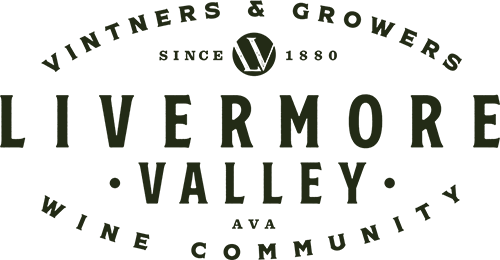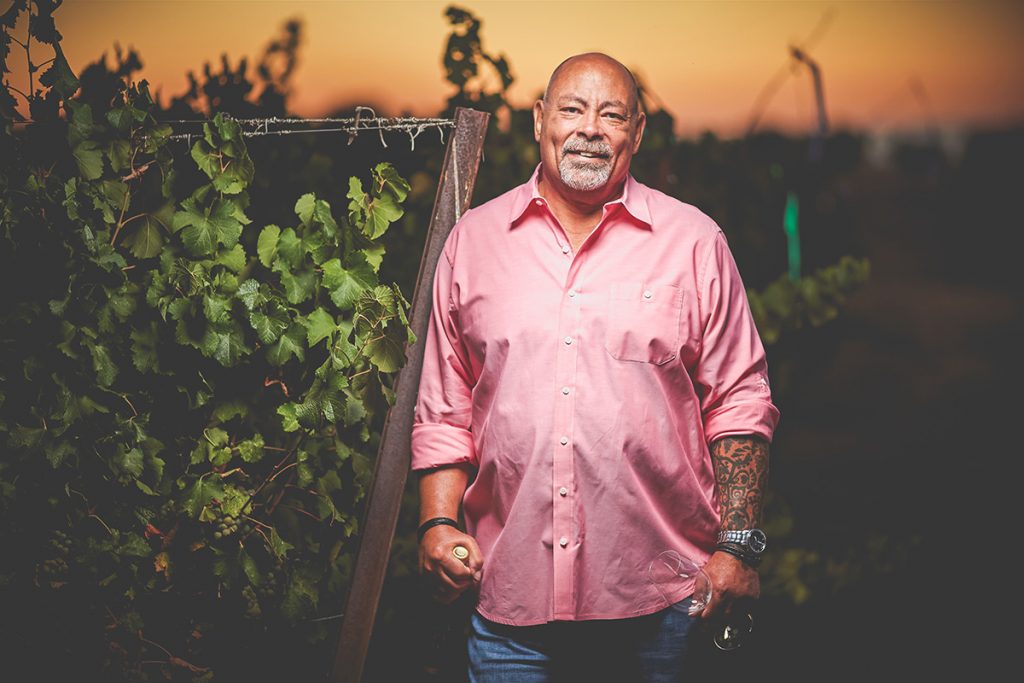Written by Livermore Valley Winegrowers Association
A Conversation with Phil Long, Winemaker and Owner of Longevity Wines
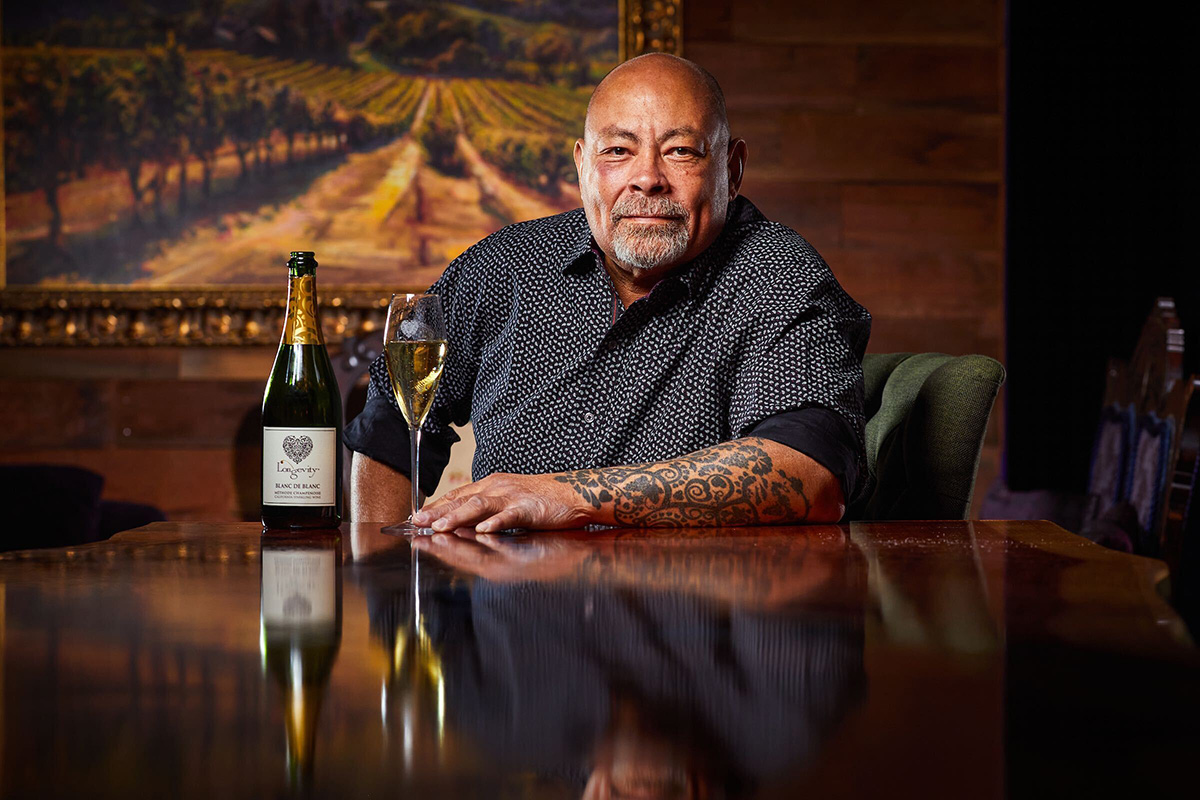
Longevity Wines is a family-owned, urban winery and certified minority-owned business based in the Livermore Valley wine region of Northern California. Founders Debra and Phil Long opened Longevity in 2008 when their winemaking hobby outgrew their garage. By that time, they had spent years visiting tasting rooms and saw a need for inclusive wine experiences. Their love of warm, welcoming spaces is evident in the cozy, barn-themed tasting room they designed together.
We were lucky enough to chat with Phil about Longevity, his journey to becoming a winemaker and owner, and his role as President of the Association of African American Vintners. The mission of the Association of African American Vintners (AAAV), a 501(c)(6) nonprofit organization, is to increase diversity in the wine industry, build awareness of Black winemakers and provide guidance and financial assistance to students from underrepresented minorities pursuing careers in the wine industry.
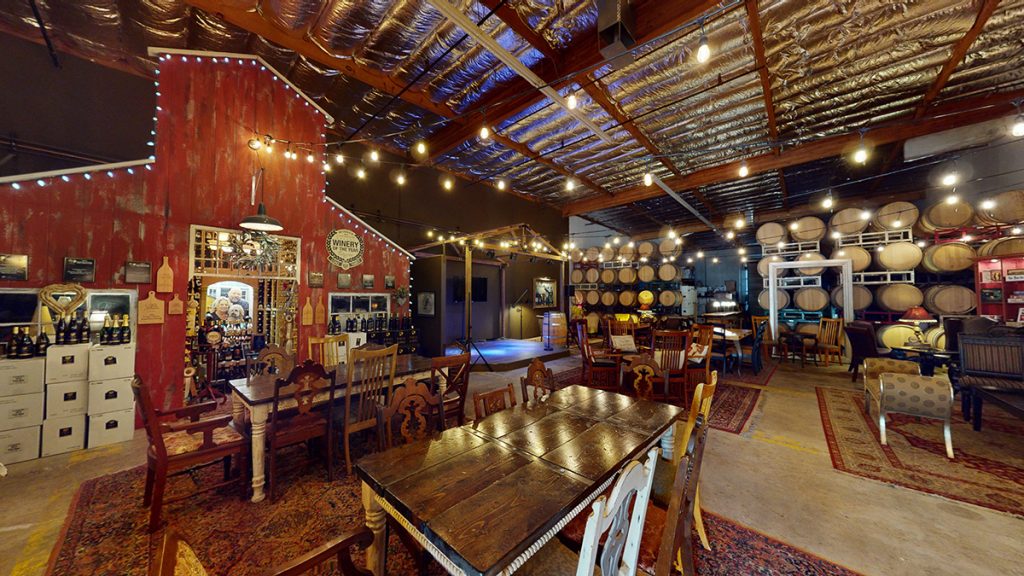
You are the president of the Association of African American Vintners. Could you tell us a little bit about that and the association in general?
Phil- The association was founded in 2002 by a gentleman named Mac McDonald. He wasn’t so much recognized as a “Black” winemaker, he was just making badass Pinot Noirs out of Sonoma–they were earning mid 90-something points. As he tells the story, he started getting out and doing events and so forth and he said, “people didn’t look like me.”
So when he did find people who looked like him, they wanted to share resources to help each other and build a community that didn’t exist. That’s how AAAV was started. I met Mac around 2010 at a Black History Month event in San Francisco. I knew who Mac was and he knew who I was, but from that point on we became friends. I didn’t know he was grooming me as his replacement, but here we are!
At first I was Vice President and then became President in January of 2020. Between the pandemic and George Floyd’s murder, it was just a horrific year.
Thank you for sharing that, Phil. When you were younger, did you see yourself becoming a winemaker?
Phil-No, I never pictured myself as a winemaker because I really wasn’t exposed to wine at all. My recollection of wine growing up is a foot tall bottle of Chianti in my dad’s dining room. So, I had no aspirations of ever becoming a winemaker. I took a drafting class in the seventh grade and something clicked. When I went to high school, I signed up for an architectural drafting class that was taught by the PE teacher. Very soon, he was saying, “if anybody has any questions go see Phil!” So, it was predetermined what I was going to do when I went to college, and that’s why I have a degree in architecture.
Why did you choose Livermore to plant your roots and start your legacy?
Phil- When Debra and I moved to Northern California in 2002 for a corporate gig, we lived in Dublin. I was the creative director for one of the largest point of purchase display companies in the country. Every weekend, we went out to explore our new surroundings. In Northern California, you can’t drive in any direction without ending up in wine country, so we ended up in one region or another, and that’s kind of how it started. So being in Dublin with Livermore so close, we got to know some of the winemakers and wineries in Livermore. For example, Thomas Coyne was a great, great mentor. Debra and I did consider other places, but Livermore made the most sense. It was close to both of our day gigs, and it was a small valley, which allowed us to carve out our own niche. There’s no doubt about it, Livermore is a beautiful place and it’s got great people.
Longevity is such a powerful brand name. Tell us about how you chose it.
Phil- I originally came up with the name Long Family Cellars. And, I’ll never forget it…Debra looked over at me and said “Do you see any family members helping clean up this crap?” I said, “You got a point.” She came up with Longevity as a play on our last name. We used it on our first wine which was a GSM,e, but when it came to think of a name for the winery it just stuck.
Your son Philip Long Jr. is now your Assistant Winemaker. It’s exciting to see you passing the torch and that Longevity is truly a family affair. Can you tell us a little bit about his journey and when he first knew that winemaking was his passion?
Phil- That’s gonna have to be a follow-up chapter. I tried to get Philip into wine early in my career, but he was only interested in beer. He and his wife and their first child moved back to Northern California in 2016, which was when Debra was diagnosed with cancer. I didn’t know until years later that he came back because he didn’t want me to go through it alone.”
That move started his journey and I think he knows now that this is the family gig that’s going to be around for him and for his kids. They’re already helping out at the winery, punching down, cleaning tanks, even though they’re just seven and nine. It’s a lot of fun.
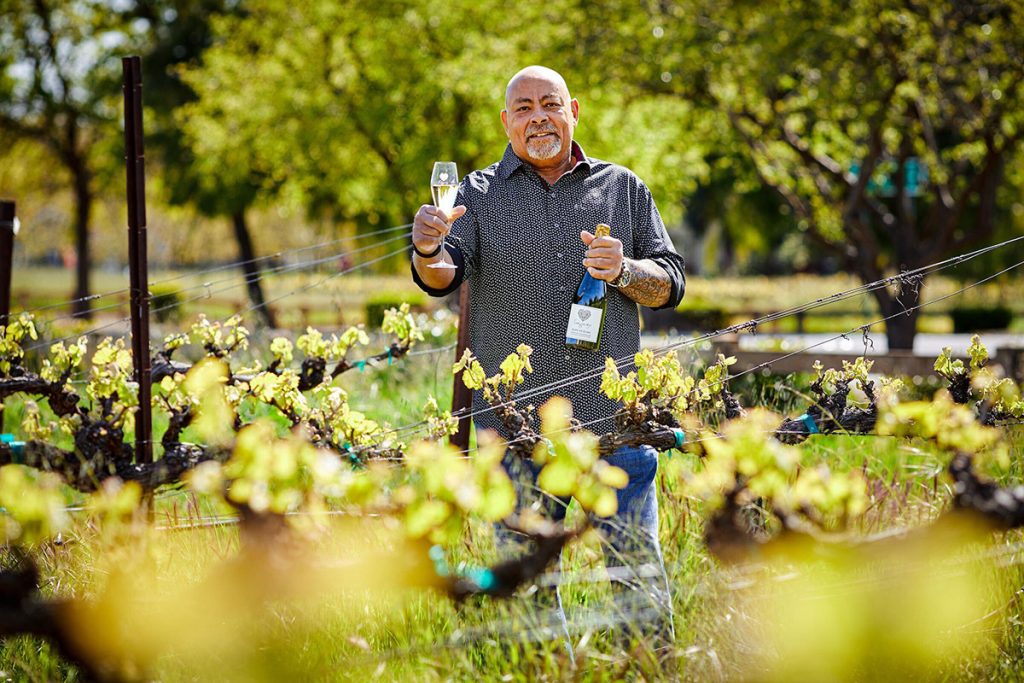
What would you say to young aspiring winemakers, particularly individuals of color who want to make this a career?
Phil- I always tell them to get involved–definitely go work a harvest. Immerse yourself in it and be open to learning all the aspects of wine. Make it something that’s around you all the time, and you’ll take off.
AAAV is working on partnering with Historically Black Colleges that offer agriculture degrees and we already have several other scholarship programs. Be sure to check those out at aaavintners.org
What do you think wineries can do to make the communities of color more comfortable walking in the door?
Actually it’s really not that difficult, if you treat everyone the same, it would be a different world. I remember when Debra and I would journey out wine tasting, for the most part, we were treated like everyone else. But there were those, That treated us differently. We/I was ignored, not taken seriously, or just generally didn’t treat us as though we were potential customers. We vowed to create an inclusive environment where everyone felt comfortable, even if you had 4 legs, kids, it didn’t matter. In the end its all about the experience you remember having when being introduced to a wine or winery. Treat everyone like family, and you will never be alone.
What are your hopes for the future of the wine industry and specifically for Livermore Valley?
Phil- Well, today, less than 1% of American winemakers are Black. That’s not a good number, right? . I use this analogy: If you have a bowl of jelly beans that represents the people who drink wine, it has all colors and shapes. But, the bowl of jelly beans that represents the people who make wine looks very different. My hope is that someday soon those bowls of jelly beans will look the same and that Livermore Valley can help lead the way in making wine inclusive.
